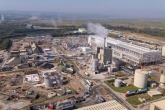Government outlines next steps for landfill waste reduction
Defra consultation outlines plans to expand restrictions on landfilling five key biodegradable materials by 2028, highlighting the need for a balanced approach between infrastructure development and policy implementation.
 The Department for Environment, Food and Rural Affairs (Defra) has published the outcome of its consultation on achieving the near elimination of biodegradable waste being sent to landfill from 2028.
The Department for Environment, Food and Rural Affairs (Defra) has published the outcome of its consultation on achieving the near elimination of biodegradable waste being sent to landfill from 2028.
The consultation, which ran from May to July 2023, sought evidence and data to help support development and targeting of policies to achieve this goal. A total of 62 responses were received from across the waste management sector, local authorities, and industry bodies.
Waste reduction policy recommendations
Based on consultation responses, Defra has identified several areas for policy development that it intends on exploring:
- Expanding the list of separately collected wastes that are are prohibited from disposal at landfill or incineration without treatment to include paper and card, food, garden waste, textiles and wood
- Determining methods to eliminate wood waste from landfill, including when it forms part of mixed waste streams
- Extending focus to all biodegradable waste, both municipal and non-municipal - at the same time, instead of through a phased approach
The consultation revealed that planned and unplanned shutdowns of Energy from Waste (EfW) facilities significantly influence decisions to dispose of biodegradable waste in landfill. A majority of respondents emphasised that some landfill capacity must be retained for contingency situations.
Respondents also advocated that the government supports changes to planning and permitting systems, as well as financial support for infrastructure development, implementation of specific targets, strong regulation and enforcement, and alignment across the UK nations.
Infrastructure and implementation challenges
The consultation highlighted significant concerns about infrastructure readiness. Respondents identified that implementation success depends heavily on the rollout of other policies, such as Simpler Recycling collections and Extended Producer Responsibility for packaging.
A total of 36 respondents expressed concerns about delays and uncertainty around implementation of collection reforms potentially impacting the 2028 target. Without policy certainty, they warned that investment in alternative infrastructure could be delayed.
Geographic distribution of treatment facilities emerged as an issue, with rural authorities potentially facing disproportionate impacts.
Future policy and stakeholder engagement
Defra advises that it will begin informal stakeholder engagement shortly and aims to consult on detailed policies this year, though this timeline depends on policy development and continued industry engagement.
Landfill is currently the biggest contributor of greenhouse gas emissions from the waste sector, with Defra estimating that it accounts for 72 per cent of total emissions for the Waste Sector 1, making the elimination of biodegradable waste a key priority for meeting net zero objectives and supporting circular economy development.
Policy developing will consider interaction with other initiatives, including the expansion of the UK Emissions Trading Scheme to waste incineration and EfW facilities, which would also come into effect in 2028.










